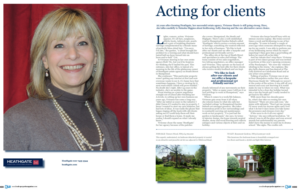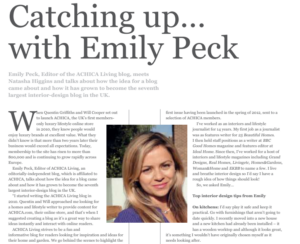FT Magazine
First Person: Wala Sawicka
As told to Natasha Higgins
I was 16 in 1940 when we were taken to Siberia by the Russians. It was around 3am when they came knocking. They told us they were taking us to the south of Poland where we would be reunited with my father. We were given half an hour to get ready.
I remember what a beautiful autumn day it was when the NKVD [People’s Commissariat for Internal Affairs] came to arrest my father. Three smartly dressed officers arrived, calling my father “Sir”. They told him the commanding officer of the town wanted to speak to him. As it was a Sunday we were on our way to church but they told us to go without my father as he would be back shortly. He only took his light jacket and summer shoes because it was so pleasant. That was the last time we saw him. They killed him.
firstpcolour5decI’m not sure how my mother fooled herself into thinking we were actually going to be reunited with my father – we knew the Russians never told the truth. At least when the Germans came to invade Poland they said: “We’re declaring war”, but when the Russians came to Poland they told us they were protecting us from the Germans. It was all lies. As I left the house, I gathered a couple of photographs of my father, a dictionary and some playing cards. Then my mother, my sister and I were escorted on to the street with bayonets held to our backs.
As we travelled through Russia the conditions were appalling: we were thrown into cattle carriages and there was a hole in the floor around which we all sat or stood and a small window for ventilation. Men, women and children were all locked in together on top of each other.
None of us knew where we were going and for the first three days of the journey the officials gave us nothing to eat or drink. On the third day they gave us some salty herring but still no water and by then children were dying. I saw mothers holding on to their dead babies, but when the NKVD officials came by they would toss the children out of the train.
Our destination was a grain factory in Siberia. The Russians were friends with Hitler then so they sent grain to Germany. Our job was to dry the grain, turn it over and make sure it didn’t catch fire. We worked 12 hours a day, non-stop.
Food was scarce but when I was taken to help clean the rail tracks, soldiers travelling by would throw me a lump of sugar, a herring and some bread that I brought home. We drank hot water with sugar and divided up the herring and bread.
The bread from the factory was bitter and we would often vomit after it. I remember being so fed up with it, that one day as we queued for our daily ration, I turned to the girl behind me and said: “They’ve given the best grain to Hitler and we’ve been left with the bitter stuff.” An NKVD offcer heard me and I was accused of anti-Hitler propaganda and sentenced to prison. My mother pleaded with him, saying I was a naive young girl, but it was no use. He told me to wait in the courtyard the following morning to be collected.
The next day I arrived and waited. The hours passed but still no one came for me. Then, suddenly, I saw people from the Polish brigade leap around hugging each other – I thought the fear of what was about to happen was causing me to hallucinate. Then, a short while later, we were told that the Sikorski-Majski agreement had been signed and that all Poles were being freed from Russia as an act of amnesty. I still wasn’t sure if I was imagining it.
In the spring of 1942 my mother, my sister and I received a telegram from my cousin, a consul in the south of Russia, asking us to look after his orchards. I remember my first night there. I got up before dawn to go to the garden because there were apple trees and flowers, something we never saw in Siberia. I remember looking up into the sky at the stars and thinking: “Those same stars are shining over Poland now.”


